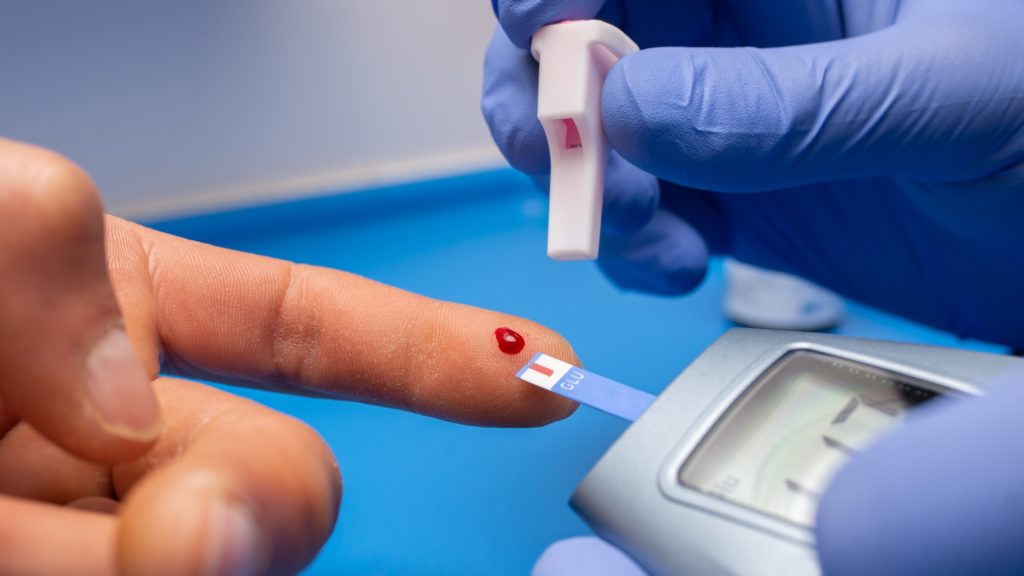The human gut is home to trillions of bacteria that play a crucial role in digestion, immune function, and even metabolism. Recent research has revealed a fascinating link between the gut microbiota and blood sugar regulation, shedding light on how the balance of microbes in our intestines can influence diabetes risk and overall metabolic health.
🧬 What is the Gut Microbiota?
The gut microbiota refers to the diverse community of bacteria, viruses, fungi, and other microorganisms living in our intestines. This ecosystem plays a vital role in:
Breaking down fiber and complex carbohydrates into short-chain fatty acids (SCFAs), which help regulate metabolism.
Producing essential vitamins and metabolites that influence insulin sensitivity.
Communicating with the immune system to prevent chronic inflammation, a major contributor to insulin resistance.
A healthy gut microbiota is diverse, balanced, and rich in beneficial bacteria like Bifidobacteria and Lactobacillus. However, factors such as a high-sugar diet, antibiotics, and stress can disrupt this balance, leading to dysbiosis, which has been linked to metabolic disorders, including type 2 diabetes.
🔗 How Does the Gut Microbiota Influence Blood Sugar?
The gut microbiota affects blood sugar regulation through multiple mechanisms:
1️⃣ Production of Short-Chain Fatty Acids (SCFAs)
Certain gut bacteria ferment dietary fiber into SCFAs, such as butyrate, acetate, and propionate, which:
Improve insulin sensitivity.
Reduce inflammation in fat and liver tissues.
Support the integrity of the gut lining, preventing the leakage of inflammatory substances into the bloodstream.
2️⃣ Gut Barrier Integrity and Inflammation
A healthy gut lining prevents harmful substances (like lipopolysaccharides, LPS) from entering the bloodstream. When the gut barrier is compromised (a condition called leaky gut), LPS can trigger chronic low-grade inflammation, which contributes to insulin resistance and metabolic dysfunction.
3️⃣ Influence on Hormones That Regulate Blood Sugar
The gut microbiota interacts with the gut-brain axis, influencing hormones such as:
GLP-1 (Glucagon-Like Peptide-1): Enhances insulin secretion and reduces appetite.
PYY (Peptide YY): Slows digestion, leading to better blood sugar control.
Ghrelin: The “hunger hormone,” which can impact eating behavior and glucose metabolism.
4️⃣ Impact on Liver Glucose Production
Certain gut bacteria regulate the liver’s glucose production by modifying bile acid metabolism and influencing insulin signaling pathways, helping maintain balanced blood sugar levels.
🥦 How to Support a Healthy Gut for Better Blood Sugar Control
✅ Increase Fiber Intake 🌾
Consume more prebiotic-rich foods, such as garlic, onions, leeks, asparagus, and bananas.
Include plenty of high-fiber foods, like vegetables, legumes, whole grains, and nuts.
✅ Eat Fermented Foods 🍶
Yogurt, kefir, sauerkraut, kimchi, and miso contain probiotics that promote gut microbial diversity.
✅ Reduce Sugar and Processed Foods 🚫
Excess sugar and refined carbohydrates can feed harmful bacteria and reduce beneficial ones, worsening blood sugar control.
✅ Consider Probiotic and Prebiotic Supplements 💊
Some studies suggest that taking probiotic supplements containing strains like Lactobacillus and Bifidobacterium may help improve insulin sensitivity.
✅ Manage Stress and Sleep 😴
Chronic stress and poor sleep negatively impact gut health and metabolism. Practices like meditation, regular exercise, and proper sleep hygiene can support both gut and blood sugar balance.
🔄 Conclusion
The connection between the gut microbiota and blood sugar control is an exciting and emerging field of research. A well-balanced gut ecosystem supports insulin sensitivity, reduces inflammation, and helps regulate glucose metabolism, playing a crucial role in preventing and managing diabetes.
By adopting gut-friendly habits—such as eating fiber-rich foods, incorporating fermented foods, and minimizing processed sugar intake—you can optimize both your microbiome and your blood sugar levels.
💬 Have you made any gut-health changes that improved your blood sugar control? Share your experiences in the comments! 🚀

Type 2 Diabetes: Is It Really Reversible?
A recent National Geographic article [link] explores how type 2 diabetes could be reversible with the right approaches. This condition, which affects millions of people worldwide, has long been considered a chronic and progressive disease. However, recent research challenges this perception and suggests that with lifestyle changes and the right approach, remission is possible. The

How Do GLP-1 Drugs Compare? A Breakdown of Ozempic, Mounjaro, and Trulicity
GLP-1 receptor agonists have revolutionized diabetes management, with drugs like Ozempic, Mounjaro, and Trulicity leading the market. But how do these medications compare in terms of effectiveness, side effects, and patient outcomes? Let’s explore their differences and what they mean for diabetes patients. Understanding GLP-1 Medications GLP-1 receptor agonists mimic a natural hormone that helps

Why Has Medicare Spending on Diabetes Medications Skyrocketed in 5 Years?
In the past five years, Medicare spending on diabetes medications has increased nearly fivefold, reaching $35.8 billion in 2023. This surge has been primarily driven by the growing use of GLP-1 drugs such as Ozempic, Mounjaro, and Trulicity. But what is behind this cost escalation, and how does it affect patients and the U.S. healthcare

The Gut Microbiota and Blood Sugar Control: A Hidden Connection
ShareTweetShareThe human gut is home to trillions of bacteria that play a crucial role in digestion, immune function, and even metabolism. Recent research has revealed a fascinating link between the gut microbiota and blood sugar regulation, shedding light on how the balance of microbes in our intestines can influence diabetes risk and overall metabolic health.

The Dawn Phenomenon: Why Blood Sugar Rises While You Sleep
For many people with diabetes, waking up with high blood sugar levels can be frustrating—especially if they didn’t eat anything overnight. This early-morning spike in blood glucose is known as the Dawn Phenomenon, and it happens due to natural hormonal changes in the body. But why does it occur, and how can it be managed?

The Influence of Red Light on Blood: Can It Improve Diabetes?
Type 2 diabetes is a metabolic disease characterized by insulin resistance and elevated blood glucose levels. In the search for complementary alternatives to improve glycemic control, red light therapy has gained attention due to its potential to enhance circulation, reduce inflammation, and optimize cellular function. But what does science say about it? ✨ What is

